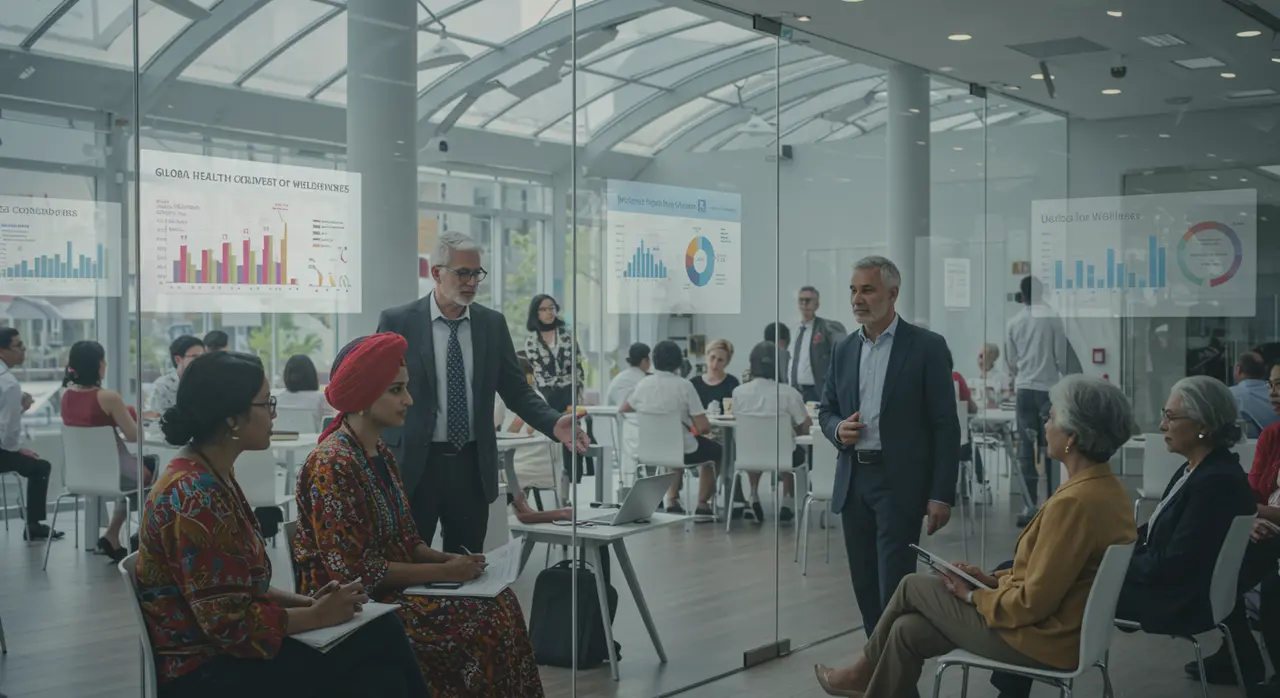World Health Day 2025 Highlights Early Interventions for Healthier Communities Globally
37 views
World Health Day 2025, celebrated globally on April 7, has cast its spotlight on the theme "Healthy Beginnings, Hopeful Futures," a call to action that underscores the profound impact of early interventions and preventive care on shaping healthier lives and communities. From maternal and newborn health to mental well-being, the day’s focus has been a mosaic of interconnected efforts aimed at fostering long-term wellness, with experts from diverse fields weighing in on the small but significant steps that can transform lives.
The Foundations of Health: Early Steps, Lifelong Impact
This year’s theme resonates deeply in a world where healthcare systems are increasingly pivoting toward prevention rather than cure. The emphasis on maternal and newborn health, for instance, serves as a poignant reminder of how critical those early months and years are in determining not just survival but the quality of life. Specialists have reiterated the importance of regular prenatal check-ups, balanced nutrition, and maternal education in reducing pregnancy-related complications and infant mortality. Such measures, they argue, are not merely medical interventions but investments in the future, laying the groundwork for healthier generations.

Equally compelling is the focus on pediatric health, where the seeds of resilience and well-being are sown early. Proper nutrition, timely immunizations, and nurturing environments are not just parental responsibilities but societal imperatives. The long-term benefits of such early care extend far beyond physical health, influencing cognitive development, emotional stability, and even economic productivity in adulthood. The day’s discussions have served as a clarion call for governments and communities to prioritize children’s health as a cornerstone of public policy.
Mental health, often relegated to the periphery of wellness conversations, has taken center stage this year. Experts have emphasized the importance of balanced habits—quality sleep, mindful eating, regular physical activity, and meditation—in maintaining mental equilibrium. In a world increasingly fraught with stressors, these practices are not luxuries but necessities. The message is clear: mental health is not a separate entity but an integral part of overall well-being. By addressing it early and holistically, we can prevent the cascade of chronic conditions often linked to untreated psychological issues.
Innovations and Integrations: A Holistic Approach to Wellness
The advancements in medical technology and integrative health practices showcased this World Health Day offer a glimpse into the future of healthcare. Urological health, for instance, has been highlighted as an area where preventive care can make a significant difference. Simple yet effective measures like staying hydrated, maintaining proper hygiene, and undergoing early screenings can stave off complex issues related to the kidneys, urinary tract, and prostate. These are actionable steps that individuals can incorporate into their daily routines, proving that prevention is indeed better than cure.
Meanwhile, the spotlight on advanced treatments like the Lumines laser for ENT disorders is a testament to how far medical technology has come. This cutting-edge technique is offering relief for conditions ranging from vocal cord problems to snoring disorders and even early-stage cancers. Such innovations not only improve patient outcomes but also reduce the invasiveness and recovery time associated with traditional treatments. They embody the principle that healthcare should not merely treat illness but enhance quality of life.
Holistic health practices, including Ayurvedic therapies and mindfulness techniques, have also been celebrated for their role in complementing conventional medicine. These approaches, rooted in centuries-old wisdom, are finding renewed relevance in a world yearning for balance. Whether it’s through yoga, herbal remedies, or guided meditation, these practices are empowering individuals to take charge of their health in ways that are both accessible and sustainable.
Dental health, often overlooked in broader health discussions, has been rightfully recognized as foundational to overall well-being. Early habits like brushing, flossing, and regular dental check-ups can prevent a cascade of issues, from gum disease to systemic conditions like heart disease and diabetes. The message is straightforward yet profound: oral health is not a luxury but a necessity, and its neglect can have far-reaching consequences.
A Shared Responsibility: Building Healthier Communities
As the day’s events and discussions draw to a close, one overarching theme emerges: health is a shared responsibility. Whether it’s parents ensuring their children receive proper nutrition, policymakers implementing preventive healthcare measures, or individuals adopting healthier lifestyles, the path to wellness is a collective journey.
The emphasis on early interventions is particularly poignant in this context. By addressing health issues at their root—whether through maternal care, pediatric nutrition, or mental health practices—we can create a ripple effect that benefits entire communities. This approach not only reduces the burden on healthcare systems but also enhances the quality of life for individuals, proving that small, consistent steps can indeed lead to monumental changes.
World Health Day 2025 serves as a reminder that health is not a static state but an ongoing process, one that requires vigilance, compassion, and a willingness to adapt. As we look toward the future, the lessons of this day are clear: by prioritizing preventive care and embracing a holistic approach to wellness, we can build a world where "Healthy Beginnings" truly lead to "Hopeful Futures."